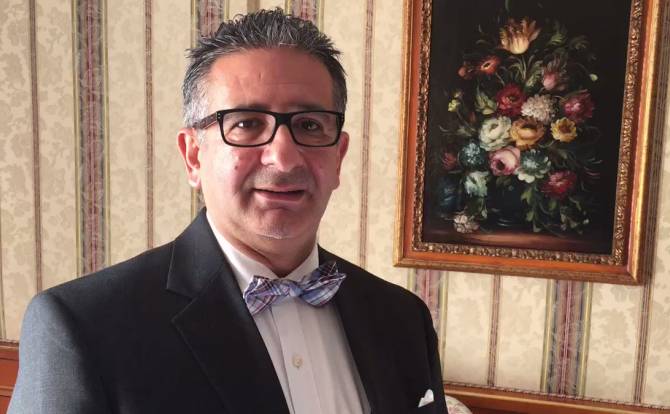By the end of the month Pope Francis will be visiting Morocco on his fifth visit to an Arab country. Before it was Jordan, Palestine, Egypt and the United Arab Emirates. The significance of this dialogue is telling of the pontificate of Pope Francis. It does not only talk about saluting the Christians of the Arab World, but also emphasizing on interreligious dialogue for the sake of peace. After the US illegal recognition of Jerusalem as Israel’s capital, with US and Israeli officials using religious arguments to justify this gross violation of international law, engagement between the Holy See and the Arab World is more important than ever. Together we can highlight the message of love and tolerance of our religions, moving towards a future of justice and peace in Jerusalem. Palestine will continue to play an important role in the relations between the Holy See and the Arab World.
In Palestine we still remember the remarkable gesture made by Pope Francis during his pilgrimage, arriving to Bethlehem from Amman via helicopter, without crossing a single Israeli checkpoint, reaffirming the Vatican’s recognition of the Palestinian people’s right to self-determination. It is in this context that a Comprehensive Agreement was signed and ratified between the State of Palestine and the Holy See.
On a wider scope, His Holiness realized from the very first moment that building the bridges between East and West and defeating the power of evil, is his main mission. For that purpose Palestine represents a main part of its mission: A historic gateway between East and West, as well as the first pilgrimage site, Palestine represents the various dimensions of a troubled reality, from the spirituality of its churches to the ugliness of the Israeli occupation. This is something that Pope Francis understood well when he stood and prayed for moments in front of the illegal Israeli annexation wall, which separates Jerusalem from its sister town Bethlehem for first time in 2000 years of Christianity. This was taken as a strong message of empathy to those oppressed worldwide.
It wasn’t long after his visit to the Holy Land that he called for the peace prayer in the Vatican City. There he had President Mahmoud Abbas and the late Israeli President Shimon Peres. Jerusalem was in the center of the prayers. That moment was a milestone in the interfaith dialogue, with Palestinian Christians and Muslims, as well as Israeli Jews, praying for peace. Indeed, the holy city of Jerusalem is the path to tranquility, peace and love.
Within this warm atmosphere, President Mahmoud Abbas urged His Holiness to reestablish the dialogue with Al-Azhar Al-Sharif, as it represents the Islamic modern voice in the Arab world. President Abbas visited Egypt for this purpose and met with Sheikh Ahmed Al-Tayyeb. From that point onward, the journey of reconciliation and fruitful dialogue between Al-Azhar and the Holy See has embarked upon a unique and special relation, culminated in the United Arab Emirates with the signing of the historic declaration of fraternity between His Holiness Pope Francis and Sheikh Al-Azhar Sheikh Ahmed Al-Tayeb, in the presence of religious world leaders representing the plurality of the Arab World.
Our engagement with the Holy See is not new. They have been present in Palestine for centuries as Christians are an integral part of our social fabric. Both Jordan and Palestine share the same vision and this is something known in the Vatican. In this context we have met a number of Catholic Church officials that have supported stronger relations with the Arab World, including the late Cardinal John Louis Tauran, President of the Pontifical Council for Interreligious Dialogue in the Vatican, whose last mission was in fact to visit Saudi Arabia. Cardinal Tauran understood that Christians were an integral part of the Palestinian people as well as the centrality of Palestine for the Arab world. He was an ardent supporter of our right to self-determination as well as for Jerusalem to be the center of three monotheistic religions, rather than an exclusive city for only one colour. It is in the Israeli message of exclusivity of Jerusalem as a Jewish city where religious extremism finds firm ground to grow. This has become the norm under the Israeli exclusive control of the city.
Palestine’s message is a strong call for justice that resonates well in those who believe in religion as a vehicle for love and peace. Patriarch Michel Sabbah, the first Palestinian Roman Catholic Patriarch of Jerusalem, said a few days after President Trump’s decision to illegally recognize Jerusalem as Israel’s capital “we will not lose our joy. We will remain in our land, we will remain in Jerusalem, capital of our prayers and of our daily life, whatever they say and decide.”
We will remain a strong ally of the Holy See. It is in this context that we are extremely honored by the upcoming visit of Pope Francis to Morocco, and we are looking forward for more dialogue in order to advance the universal cause for justice and peace. This peace passes through Jerusalem. As we strengthen our coordination with Jordan for the protection of Jerusalem, as well with HM King of Morocco Mohammad the V1 as Chairman of Al-Quds Committee, it is important to strengthen the dialogue between the Arab World and the Holy See as a symbol of unity for a just and lasting peace which emanates for the holy city of Alquds.






